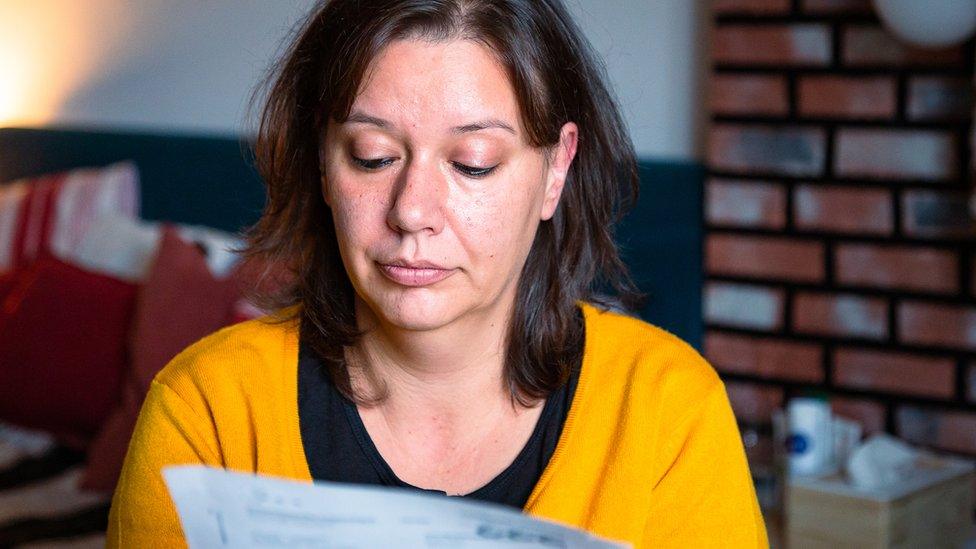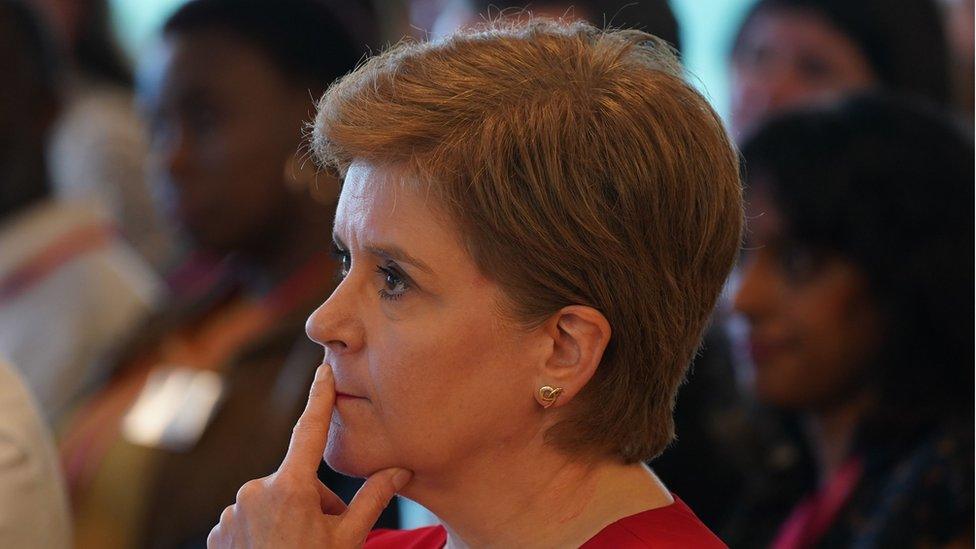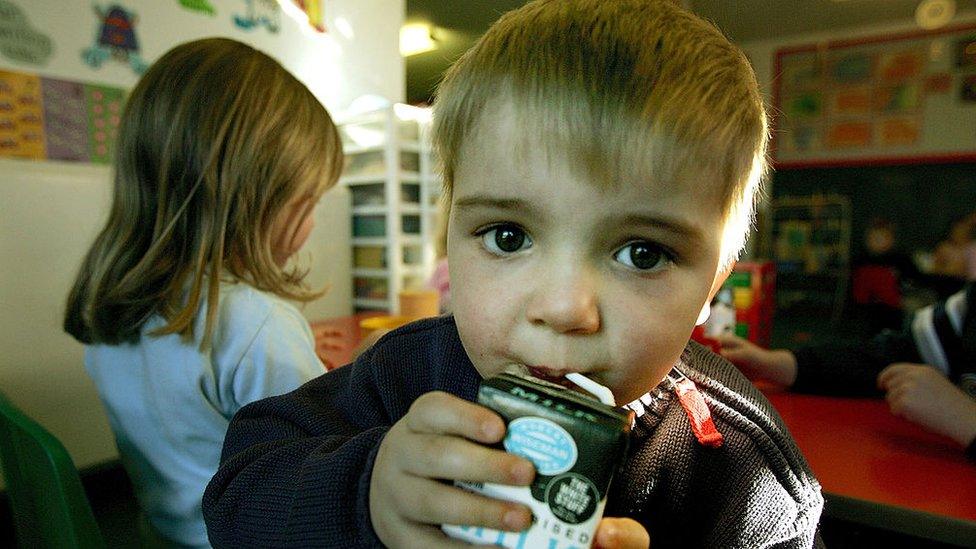'Catastrophic impact' of rising prices on children
- Published

Poverty caused by rising prices will have a "catastrophic impact" on children, Scotland's children's commissioner has said.
Energy regulator Ofgem increased the price cap on household bills by 80% earlier this week, adding to the pressure of the cost of living crisis.
Bruce Adamson said there was a "massive failure of government at all levels".
Charities and experts have called on the government to announce more support as a matter of urgency.
Writing in the Mail on Sunday, external, Prime Minister Boris Johnson has said his successor will deliver a "huge package" of support, without saying what it would be.
Nicola Sturgeon, Scotland's first minister, has called for urgent action from the UK government as only they can "access and make available resources of the scale required".
Mr Adamson, whose role as children's commissioner is independent but publicly funded, told BBC Radio Scotland's The Sunday Show that poverty "impacts every single element" of youngsters' lives.
"It can affect their development, it has a negative impact on their mental and physical health, their education, family relationships, standard of living, aspirations and life chances," he said.
"Everyone who has any level of power needs to be thinking about how they can use their powers in the most effective way and use the resources they have most effectively.
"We're talking about a rights issue here and at the most extreme we are talking about the lives of children, but we're also talking about education and health and mental health, and the impact of governments failing to act are going to be lifelong."
He said making additional money and support available now "makes economic sense".
"The failure to act now is going to have massive economic consequences in the future as well in our health system and education system," he added.
"It's unacceptable that we've got children being left hungry, that families are without heating. These are political choices and we're leaving families unable to survive."
Universal support
Gas and electricity bills are set to soar in the autumn, with a typical household bill rising to £3,549 in October when the new energy price cap takes effect.
Rishi Sunak, who is vying to become the next prime minister, has said the government "must provide some direct support to everyone".
But Ms Truss's team said she was not considering further universal support, like the £400 payment that all households will receive this winter.
Reports suggest a VAT cut is an option.
Prices have already increased dramatically this year with inflation - the rate at which prices rise - hitting a 40-year high of 10.1% in July, and expected to reach an estimated 18% next year.
Workers in many sectors have been calling for wage rises to help them cover the rising cost of living, with rail workers, mail staff, barristers, council workers among those already going on strike and unions calling for further co-ordinated strikes this autumn.
However, the Confederation of British Industry (CBI) has warned businesses are also facing "brutal" increases in their costs and need government support to help to drive real wage growth.
'We're asking for government commitments now' - Tracy Black
Tracy Black, CBI Scotland director, told BBC Scotland wages needed to be driven by long-term growth.
"It's completely understandable that people are really worried about how to pay those direct debits at the end of the month," she said. "We all want to see us moving to a higher wage economy but we need that done in a really sustainable manner."
Ms Black added: "It's only through productivity improvements we can really get that long term growth which will then give us real wage growth."
In the meantime she said businesses needed the Scottish and UK governments to step in with extra support.
"There's real pressure on businesses and it's not set to get any better over the coming months," she said.
The measures CBI Scotland is calling for include a business rate freeze in Scotland, flexibility in loan repayments, an expansion of the Covid loan scheme and support for increasing energy efficiency.
"We're asking for things like these commitments from government now," Ms Black said.
"We can't wait weeks and months to know what the support is going to be. Business needs to know where are they going to see support so they can put those plans in place.
"One in three businesses are trying not to pass on those additional costs to consumers. The only way they can do that is by clear guidance from government where the support is going to be."
'Limited powers and budget'
The Scottish government said it had allocated almost £3bn this year to "help mitigate the cost of living crisis".
A government spokesperson said: "We are very concerned at the hardship households are facing, and the Scottish government is doing what we can with the limited powers and budget we have."
This included increasing the Scottish Child Payment to £25 per eligible child per week and extend it to cover children under 16s by the end of the year.
"We are the only nation in the UK offering this vital benefit, as well as bridging payments worth £520 annually to support over 145,000 school age children," the spokesperson said.
"The new Child Winter Heating Assistance, an annual payment of £214, is only available in Scotland and provides families of disabled children with much needed certainty."
A further £10m has been committed to continue the Fuel Insecurity Fund in 2022-23 to help households at risk of self-disconnection, they added.
- Published26 August 2022

- Published26 August 2022
- Published27 August 2022

- Published16 August 2022

- Published22 June 2022
